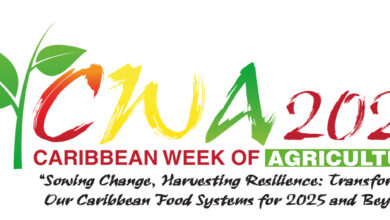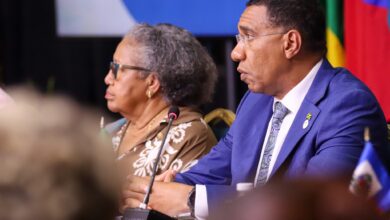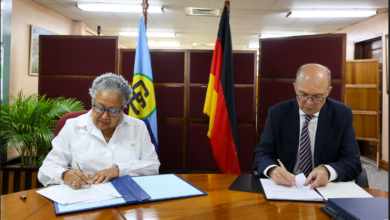(CARICOM Secretariat, Turkeyen, Greater Georgetown, Guyana) The Member States of the Caribbean Community (CARCOM) played an active role during the Community of Latin American and Caribbean States Summit (CELAC) on 28-29 January 2014 in Havana, Cuba, on the theme “Eradication of Hunger, Poverty and Inequality”.
This also applied to their role during the preceding preparatory meetings of National Coordinators on 25-26 January and of Foreign Ministers on 27 January.
The recognition of the Community’s participation as an equal partner in the CELAC integration process was reflected in the Summit decision to transform the leadership mechanism of the Troika plus one (current, past and incoming Pro Tempore Chairperson plus the CARICOM Chairperson) into a Quartet.
CARICOM Member States tabled several Special Declarations which were endorsed and now form part of the outcome documents of the Summit. These Special Declarations touched on matters of priority interest to CARICOM. These included the issue of Small Island Developing States (SIDS), climate change, the challenges of Middle Income Countries, reparations for slavery and native genocide, illegal and unregulated fishing, and the permanent memorial in honour of the victims of slavery and the slave trade. On the issue of the illicit trafficking in small arms and light weapons to which a Special Declaration was devoted, Trinidad and Tobago offered to host the secretariat of the Arms Trade Treaty.
A Special Declaration was also tabled on the nationality ruling of the Constitutional Court of the Dominican Republic in September 2013, stripping arbitrarily and retroactively nationality from a large number of Dominicans, predominantly Haitian. This led to frank exchanges of views at both the Meeting of Foreign Ministers and during the Summit Retreat. The issue was also addressed in the presentations by CARICOM Member States in the Summit plenary sessions, in particular by the CARICOM Chairman, in the course of which it was highlighted that the ruling was neither a migration nor a bilateral issue but a violation of the human and nationality rights of Dominican citizens. Unfortunately, time did not permit the negotiations required to finalise a document on what was a sensitive, important and contentious issue.
In addition to the Havana Declaration and the CELAC Plan of Action, many of the other Special Declarations touched on issues of prime interest to the Community– drug trafficking, relations between states and transnational companies, migration regularization, the empowerment of women, Latin America and the Caribbean as a zone of peace and CELAC international outreach.
The Second Summit of CELAC underlined the increasing dynamism of this new regionalisation process as well as the profound systemic changes taking place in the geopolitics of the hemisphere. In this regard, the venue of the Summit, the first visit of a Secretary General of the Organisation of American States (OAS) to Cuba since the suspension of that country from the organisation in 1962, as well as the first visit to Cuba by a President of Costa Rica, the incoming Pro Tempore President, were of symbolic and historic importance.
CubaGender InequityPoverty AlleviationPress Releases





